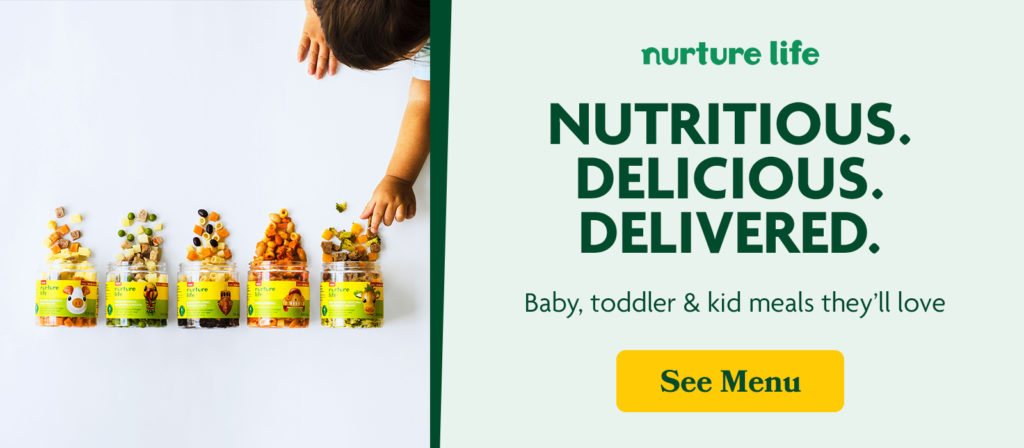Signs Your Baby Is Hungry or Full
Babies can be tough to read, even when they’re ours. Does that smile—complete with those adorable dimples—mean they’re happy, well-rested, hungry, passing gas or something else entirely?
When you first start feeding your baby, being able to read when they’re hungry or full can be critical to a successful and fun mealtime for both you and your baby.
Remember: During the first year, your baby is dependent on formula or breast milk, which provides most of their nutrition. Starting solids helps teach babies how to eat, paving the road for mastering solid food later on.
Signals your baby is hungry
Starting on solids is exciting for babies, especially because they get to see the world from a new vantage point: the high chair! They also begin experiencing new tastes and textures (and some get their first introduction to gravity as they watch their food fall to the floor).
As exciting as it is, mealtime will be most successful if you know your baby is hungry. Not all babies exhibit the same behaviors when they’re ready to eat, but here are a few signals that typically indicate “feed me!”
- Excited. Arms waving, legs kicking. The more you feed them, the more they wave and kick.
- Alert. Sitting attentively in their high chair, eyes wide open, head and body leaning forward and in (toward the spoon).
- Happy. Smiling, laughing, making cooing sounds as you feed them.
- Licking their lips. Drooling, salivating, opening and closing their mouth.
- Engaged. Gabbing or trying to suck on their lips, tongue, hands, fingers, toes, toys or clothing.
Signals your baby is full
Babies know they’re hungry and ready to eat, and they also know when they’re full and ready to stop. When your baby starts exhibiting fullness cues, it’s time to end mealtime. Fullness cues vary among babies, but here are some signs that typically indicate they’ve had enough to eat.
- Turning head away. Turning away and fussing as you bring the spoon to their mouth.
- Locking lips. Pressing their lips together as you guide the spoon to their mouth.
- Squirming. Fidgeting in their high chair and pushing up to try to get out.
- Throwing things. Tossing the spoon or food onto the floor when you try to encourage them to eat more.
- Pushing your hand away. Moving your hand as you try to keep feeding them.
If your baby insists on playing in the high chair rather than eating, consider ending the meal and trying again at the next mealtime. You want your baby to associate the high chair with eating, not playing—it will help mealtimes go more smoothly.
Throwing food might be an attention-seeking behavior from your baby. Drawing attention to it (by saying, “No! Don’t throw!” for example) could cause your child to keep doing it. Continue your meal and wait until after mealtime to clean up the mess on the floor. This will help your baby focus on eating rather than diverting their attention.
Setting Up the Foundation
The goal of a clean plate or an empty bowl can lead to difficult mealtimes, as well as resentment or power struggles around food. Instead, pay attention to your baby’s hunger and fullness cues. Try not to pressure your baby to finish their entire meal—this can have negative long-term effects (overeating, for example, or being unable to recognize when they’re actually full).
Reading your baby’s hunger cues and feeding accordingly can help create a smooth, successful mealtime for both of you. By doing this, you’ll begin laying the foundation for healthy eating behaviors as your baby grows into a toddler.


